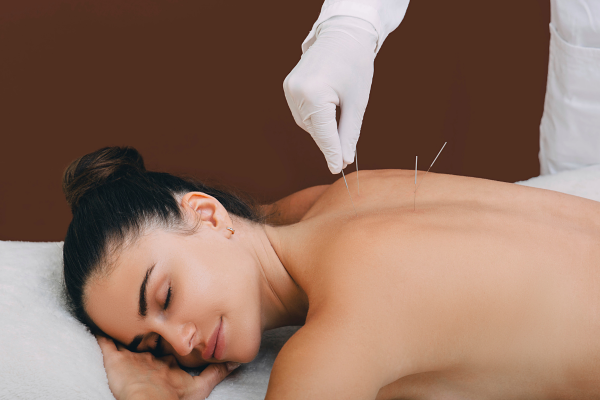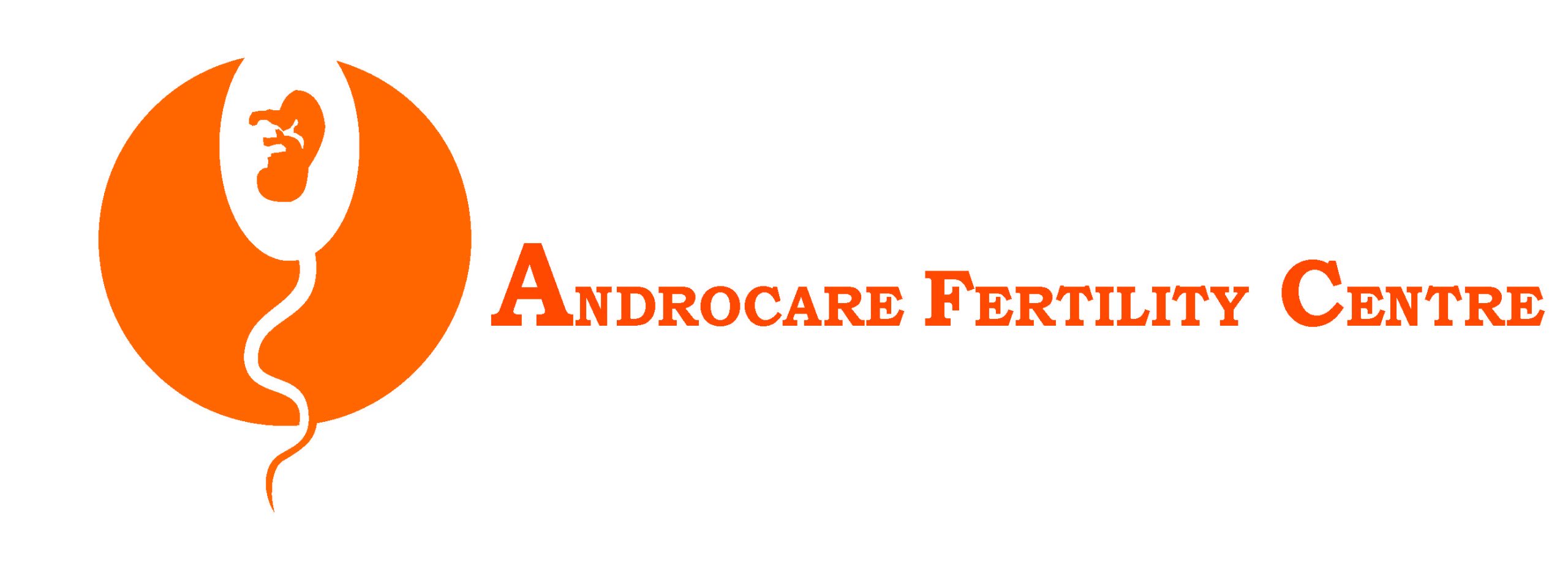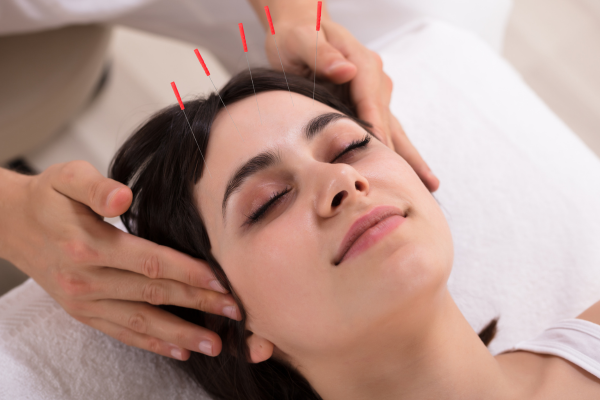15 Surprising Benefits Of Acupuncture
Introduction
Acupuncture is a millennium-old Chinese medicinal technique. Thin needles are inserted into predetermined body locations to encourage the body’s natural healing mechanisms. Originally developed as a component of traditional Chinese medicine, acupuncture has its roots in ancient China.
According to traditional Chinese medicine, Qi, or life force, moves through the body’s network of meridians, or energy pathways. Numerous health issues can arise from an imbalance or obstruction in the flow of Qi. Acupuncture stimulates particular points along these meridians in an effort to restore Qi’s flow and balance.
The Science Behind How Acupuncture Works
Despite being used for centuries, its exact mechanisms of action are still unknown. Modern research has provided some insight into the mechanism of action of acupuncture, though. Endorphins are naturally occurring chemicals in the body that reduce pain; one theory suggests that acupuncture stimulates the release of these chemicals.
These endorphins have the ability to lessen pain and enhance wellbeing. Also, it has been discovered that acupuncture stimulates the release of additional hormones and neurotransmitters, each of which can have a different physiological effect.
Its impact on the nervous system provides an additional explanation for how acupuncture functions. Needles can be inserted into the body at particular locations to stimulate sensory nerves, which subsequently send messages to the brain.
| Benefit | Description |
|---|---|
| Reduces Stress | Acupuncture can help reduce stress by promoting relaxation and reducing anxiety. |
| Relieves Pain | Acupuncture can help relieve pain by stimulating the release of endorphins, the body’s natural painkillers. |
| Improves Sleep | Acupuncture can help improve sleep by promoting relaxation and reducing stress and anxiety. |
| Boosts Immune System | Acupuncture can help boost the immune system by increasing the production of white blood cells. |
| Reduces Headaches | Acupuncture can help reduce headaches by promoting relaxation and reducing tension in the muscles. |
| Improves Digestion | Acupuncture can help improve digestion by regulating the digestive system and reducing inflammation. |
| Reduces Allergies | Acupuncture can help reduce allergies by regulating the immune system and reducing inflammation. |
| Improves Fertility | Acupuncture can help improve fertility by regulating hormones and increasing blood flow to the reproductive organs. |
| Reduces Depression | Acupuncture can help reduce depression by promoting relaxation and reducing stress and anxiety. |
| Improves Skin Health | Acupuncture can help improve skin health by increasing blood flow and promoting the production of collagen. |
| Reduces Menopausal Symptoms | Acupuncture can help reduce menopausal symptoms by regulating hormones and reducing hot flashes and night sweats. |
| Improves Athletic Performance | Acupuncture can help improve athletic performance by reducing inflammation and promoting recovery. |
| Reduces Addiction | Acupuncture can help reduce addiction by promoting relaxation and reducing cravings and withdrawal symptoms. |
| Improves Respiratory Health | Acupuncture can help improve respiratory health by reducing inflammation and promoting relaxation of the airways. |
| Reduces High Blood Pressure | Acupuncture can help reduce high blood pressure by promoting relaxation and reducing stress and anxiety. |
Neurotransmitters that help control how pain is perceived and other biological processes may be released in response to these impulses.
Acupuncture Points and Meridians
During acupuncture treatments, needles are inserted into specific points on the body known as acupuncture points. It’s thought that a network of meridians connects these points to various organs and bodily systems.
The body is covered in hundreds of acupuncture points, each with special healing qualities. Certain points, for instance, are used to induce relaxation or speed up digestion, while others are recognized for their analgesic properties.
It is thought that Qi travels through channels called meridians, or energy pathways. Every meridian corresponds to a particular bodily system or organ. Acupuncturists seek to promote health and well-being by stimulating the acupuncture points along these meridians in order to restore the balance and flow of Qi.
Acupuncture’s ability to relieve pain is one of its most well-known advantages.
It is a natural alternative to prescription drugs for pain management. Acupuncture has been demonstrated in numerous studies to be a useful substitute for medications in treating a variety of ailments.
For instance, acupuncture proved to be more successful than conventional treatment in reducing chronic pain in patients with osteoarthritis of the knee, according to a study published in the Journal of Pain.
According to a different study that was published in JAMA Internal Medicine, acupuncture was useful in lowering migraine frequency and intensity. Other pain conditions like fibromyalgia, neck, & back pain have also been found to benefit from acupuncture. It can aid with pain relief by lowering inflammation, enhancing blood flow, & encouraging the release of endorphins.
Better Sleep: How Acupuncture Can Help You Get a Better Night’s Sleep?
Acupuncture has been shown to have pain-relieving benefits as well as a positive impact on the quality of sleep. Acupuncture is a natural remedy for sleep disorders like insomnia, which plague a lot of people.
Acupuncture stimulates specific points linked to sleep regulation, which can help the body’s circadian rhythm. The production of melatonin, a hormone essential to the regulation of sleep, has been observed to rise in response to it.
Acupuncture can help people fall asleep more quickly and stay asleep longer by raising melatonin levels. The efficacy of acupuncture in treating insomnia has been demonstrated by numerous studies. One study, for instance, indicated that acupuncture was useful in helping patients with primary insomnia reduce their symptoms & enhance the quality of their sleep. The study was published in the Journal of Sleep Research.
Another study that was published in the Journal of Alternative & Complementary Medicine indicated that postmenopausal women who experienced sleep disturbances could benefit from acupuncture.
Reduced Stress and Anxiety: Acupuncture as a Stress Buster
In the fast-paced world of today, stress and anxiety are prevalent issues for a large number of people. A natural and efficient method of lowering stress and encouraging relaxation is provided by acupuncture. Research have demonstrated that by lowering the body’s production of stress hormones like cortisol, acupuncture can help control the stress response.
Also, it can trigger the release of endorphins, which are calming and mood-enhancing chemicals. Acupuncture was found to be beneficial in lowering anxiety symptoms in patients suffering from generalized anxiety disorder, according to a review of studies published in the Journal of Acupuncture & Meridian Studies.
A different study that was published in the Journal of Endocrinology demonstrated that acupuncture decreased the rise in heart rate and blood pressure that stress caused.
Digestive Health: How acupuncture Can Help with Digestive Problems
Research has shown that acupuncture can help with a variety of digestive problems, such as constipation, acid reflux, and irritable bowel syndrome (IBS). By enhancing the flow of blood to the digestive organs, decreasing inflammation, and inducing the release of digestive enzymes, acupuncture can help regulate the digestive process.
Also, it can aid in gastrointestinal tract muscle relaxation, which can lessen symptoms like bloating and abdominal pain.
Numerous studies have demonstrated how well acupuncture works for digestive problems. For example, a study published in the World Journal of Gastroenterology found that acupuncture was effective in reducing symptoms of IBS.
Increasing Immunity: Using Acupuncture as a Natural Immune System Enhancer
In order to protect the body from illnesses and infections, the immune system is crucial. Acupuncture is a useful tool for preserving general health and wellness because it has been shown to have immune-boosting effects. Studies have demonstrated that acupuncture can increase the generation of immune cells, including T-cells & natural killer cells, which are critical in the defense against infections.
Also, it has the ability to increase these immune cells’ activity, which boosts their capacity to fight off infections. According to a study that was published in the Journal of Alternative & Complementary Medicine, healthy people who received acupuncture produced more natural killer cells. A different study that was published in the Journal of Neuroimmunology revealed that acupuncture improved rheumatoid arthritis patients’ immune systems.

Women’s Health: How Menstrual Cramps and Menopause Can Be Helped by Acupuncture
Many women go through their menstrual cycle experiencing various symptoms, including cramps. Through the regulation of hormonal imbalances and the reduction of inflammation, acupuncture can provide relief from these symptoms.
The production of hormones that are important to the menstrual cycle, like progesterone and estrogen, has been found to be regulated by acupuncture. Acupuncture can help relieve symptoms like bloating, mood swings, and menstrual cramps by balancing these hormones. Acupuncture has been demonstrated to be beneficial in treating menstrual cramps & menopausal symptoms in numerous studies.
A study that was published in the journal Obstetrics and Gynecology, for instance, discovered that acupuncture was useful in lessening the intensity of menstrual pain. A separate study that was published in Menopause revealed that acupuncture helped menopausal women sleep better & experience fewer hot flashes.
Fertility: Using Acupuncture to Increase Fertility
Naturally Infertility is a prevalent issue that impacts a large number of couples globally. It has been discovered that acupuncture is an effective supplemental treatment for increasing fertility. Reproductive hormone imbalance, reduced stress, & enhanced blood flow to the reproductive organs are all factors that acupuncture can help with and can all lead to infertility.
It can also increase the success rates of IVF and other assisted reproductive procedures. Acupuncture has been proven to be beneficial in increasing fertility in numerous studies. In Fertility and Sterility, for instance, a study revealed that acupuncture enhanced the likelihood of pregnancy among IVF recipients.
Men who were infertile showed improved sperm quality after receiving acupuncture, according to a different study that was published in the Journal of Alternative & Complementary Medicine.
Relieving Headaches & Migraines
The Potential Benefits of Acupuncture Headaches and migraines can be extremely incapacitating and negatively impact an individual’s quality of life. It has been discovered that acupuncture works well to lessen the frequency and intensity of migraines and headaches.
In order to alleviate headache pain, acupuncture can help release muscle tension, enhance blood flow to the head, and lower inflammation. Also, it has the ability to trigger endorphin release, which reduces pain. Acupuncture has been demonstrated to be effective in treating headaches and migraines in numerous studies.
For instance, acupuncture was found to be more effective than standard care in reducing the frequency and severity of migraines in a study published in JAMA Internal Medicine. Acupuncture proved beneficial for treating tension-type headaches, according to a different study published in Headache.
Addiction Recovery: Acupuncture as a Complementary Treatment for Addiction
Addiction is a multifaceted illness that impacts millions of individuals globally. As a complementary therapy for addiction recovery, acupuncture can be beneficial in lowering cravings, easing the symptoms of withdrawal, and elevating mood.
Research indicates that endorphins, which can lessen cravings and increase feelings of wellbeing, are stimulated to be released by acupuncture. Also, dopamine and other neurotransmitters that are important in addiction can be regulated by it.
Acupuncture has been proven to be beneficial in the treatment of addiction by numerous studies. For instance, acupuncture was shown to lessen cravings and withdrawal symptoms in people going through heroin detoxification, according to a study published in the Journal of Substance Abuse Treatment.
Another study that was published in Drug and Alcohol Dependence revealed that acupuncture helped people who were alcohol dependent feel happier & less anxious.
Better Mental Health: Using Acupuncture to Treat Depression and Anxiety
Naturally Depression & anxiety are common mental health conditions that can have a significant negative influence on a person’s quality of life. Treating these ailments naturally and successfully can be provided by acupuncture.
It has been discovered that acupuncture controls neurotransmitters that are important for mood regulation, such as dopamine and serotonin. Acupuncture can lessen the symptoms of anxiety and depression by restoring the balance of these neurotransmitters. Acupuncture has been demonstrated to be effective in treating anxiety and depression in numerous studies.
A study that was published in the Journal of Clinical Psychiatry, for instance, discovered that acupuncture was useful in helping patients with major depressive disorder feel less depressed. A different study involving patients with generalized anxiety disorder and published in the Journal of Alternative and Complementary Medicine revealed that acupuncture lessened their anxiety symptoms.
Respiratory Health: How Acupuncture Helps with Allergies & Asthma
A person’s quality of life can be significantly impacted by respiratory conditions like allergies and asthma. By lowering inflammation, enhancing lung function, and easing symptoms, acupuncture has been shown to be helpful for these illnesses.
Improved lung function, decreased airway inflammation, and immune response regulation are all possible with acupuncture. Also, it may facilitate easier breathing by relaxing the respiratory system’s muscles. Acupuncture has been demonstrated to be beneficial for respiratory problems in numerous studies.
A study that was published in the Journal of Alternative and Complementary Medicine, for instance, discovered that acupuncture helped patients with allergic asthma breathe easier and have better lung function. The benefits of acupuncture for allergic rhinitis were demonstrated by a different study that was published in Allergy.
Pain Relief Through Acupuncture
Acupuncture is a natural approach to pain relief that involves inserting thin needles into specific acupoints on the body to stimulate the release of endorphins, which act as natural painkillers. It can be effective in treating chronic conditions such as back and neck pain, arthritis, migraines, and fibromyalgia, as well as reducing post-operative pain and discomfort.
Unlike pharmaceutical treatments, acupuncture has minimal adverse effects and promotes relaxation and reduces stress levels. Regular acupuncture sessions can improve both physical discomfort and emotional well-being. Acupuncture is a versatile option for those seeking natural relief from persistent pain issues.
Relief from Headaches
Many individuals experience the debilitating effects of persistent headaches, which can greatly impact their daily quality of life. Acupuncture offers a natural and holistic approach to alleviating this common ailment. By targeting specific pressure points and releasing endorphins, acupuncture promotes relaxation throughout the body, effectively reducing tension in the muscles that may be contributing to headaches. This gentle and non-invasive treatment option provides relief without the need for medications or invasive procedures.
Moreover, acupuncture aims to address the root cause of headaches rather than merely masking symptoms. Its ability to improve blood circulation and promote overall well-being can lead to long-lasting benefits beyond just headache relief. People who have tried acupuncture often report feeling a sense of calmness and improved energy levels after sessions, further enhancing their overall health and happiness. In this way, acupuncture offers a personalized and tailored approach to managing headaches that considers the individual’s unique needs and circumstances.
Benefits of Acupuncture in Managing High Blood Pressure
Acupuncture, a traditional Chinese medicine technique, can help reduce high blood pressure by promoting relaxation and alleviating stress. It stimulates the release of endorphins, which have a calming effect on the nervous system, and aids in balancing the body’s energy flow.
Regular acupuncture sessions may provide significant benefits in managing chronic stress and reducing long-term risks associated with high blood pressure. However, it should be used in conjunction with other lifestyle changes such as a healthy diet, regular exercise, and medication as prescribed by healthcare professionals.
Enhancing Athletic Performance with Acupuncture
Acupuncture can improve athletic performance by reducing inflammation, promoting faster recovery, alleviating muscle tension, and boosting energy levels and mental clarity. It can also prevent sports-related injuries by promoting balance, enhancing flexibility and range of motion, reducing stress, and improving sleep quality.
Acupuncture is a valuable tool for athletes striving for excellence as it addresses both physical and mental aspects of performance.
Conclusion
In conclusion, acupuncture is a traditional Chinese medical practice that has a multitude of benefits for a wide range of health conditions. Acupuncture has demonstrated efficacy as a natural means of promoting health and wellness, offering pain relief, better sleep, decreased stress, increased fertility, and improved mental well-being.
Even though the exact mechanisms of action of acupuncture are still unknown, recent research has shed light on its operation. Acupuncture improves blood flow, lowers inflammation, boosts immunity, and triggers the body’s own healing mechanisms. It also modifies hormones and neurotransmitters.
Consider acupuncture as a complementary therapy if you are experiencing symptoms of any of the conditions listed in this article.
It can be used in conjunction with traditional medical treatments and is a safe, non-invasive treatment option. It is imperative that you seek advice from a licensed acupuncturist who is capable of evaluating your specific requirements & creating a customized treatment regimen.
The precise points & techniques used in acupuncture will depend on your particular condition since it is a highly individualized practice. In summary, acupuncture provides a comprehensive approach to health and wellness by treating the body’s underlying imbalances as well as its outward symptoms.
Acupuncture can assist you in reaching your ideal state of health and wellbeing by reestablishing equilibrium & encouraging the body’s inherent healing abilities. Why not try acupuncture for yourself and discover its many advantages?

